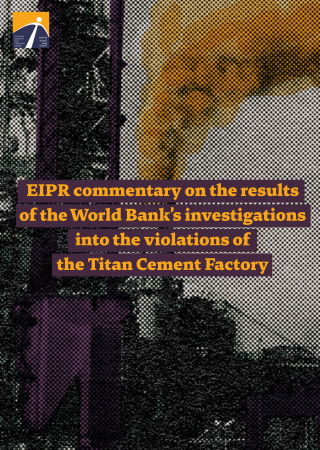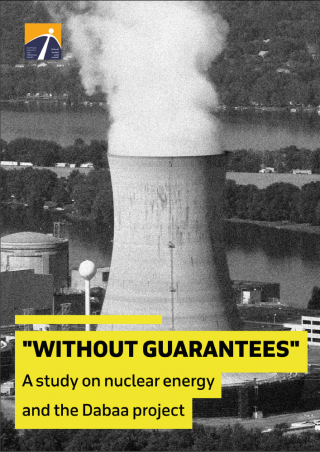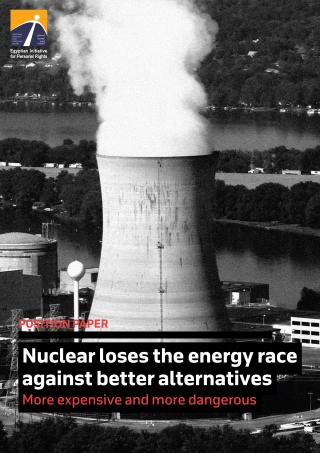The Egyptian Initiative for Personal Rights (EIPR) issued a comment on the report released lately by the Investigatio
Files: Environmental Justice
The Egyptian Initiative for Personal Rights (EIPR) issued a comment on the report released lately by the Investigation office of the World Bank Group (CAO) on the complaint against the Alexandria Portland Cement Company (Titan Cement Factory), and the International Finance Corporation ( IFC) , the private sector arm of the world bank Group, which funded the establishment of the company.
The study seeks to provide simplified information on various aspects of nuclear power for the sake of facilitating and enriching the public dialogue and participation in the issues of nuclear energy in Egypt. EIPR adopts a position that considers nuclear power an expensive, dangerous, risky and unsustainable source of electricity and that better alternatives exist, especially renewable energy. Renewable resources would guarantee energy security and accessibility while protecting health and environment.
On the International Day of Commemoration of Chernobyl, the EIPR publishes a position paper on nuclear energy entitled "The nuclear energy more expensive and more dangerous”. The paper calls for solidarity with the victims of the disaster and for drawing lessons and reviewing ideas on the use of nuclear energy, especially with cheaper and safer alternatives.
The world can do without nuclear energy altogether, as there are better alternatives to meet energy and electricity needs. Renewables top the list of these alternatives around the world and in Egypt specifically.
A group of residents of the Wadi al-Qamar area in western Alexandria, located near a cement plant, had filed a complaint to the Environmental Affairs Agency (EAA) and the Public Prosecution in August 2015, alleging that emissions from the Alexandria Portland Cement were harmful to their health.
EIPR sees this judgment as justice for the complainants and a recognition of their rights to health and environmental safety. The judgment is particularly important because current environmental laws and regulations allow heavy polluting industries such as cement and coal-powered plants to operate in residential areas.
The Egyptian Initiative for Personal Rights (EIPR) called on the Egyptian government to disclose the details of the agreements of the Dabaa nuclear plant. EIPR also demanded the government to abide by the constitution and present the agreement and the related loan agreement to the parliament and obtain its approval before the implementation and not proceed with the project under these conditions.
Egyptian Initiative for Personal Rights (EIPR ) declared its objection to the recently issued nuclear energy laws and said that these laws contradict a number of legal and constitutional principles, undermine the independence of the Egyptian Nuclear and Radiological Regulatory Authority (ENRRA) and nuclear safety guarantees, as well as wasting state resources. EIPR demanded that these laws be reviewed and that nuclear power plant contracts not be signed for the time being.
For many years, the residents practiced many forms of peaceful protests against the factory. They wrote petitions, filed complaints, held negotiations with factory officials, talked about their cause in the media, used social media, produced documentary films, and even conducted researches and proposed alternatives.






